Dates: June 29 – July 4, 1871
Location: Straight River Park (Medford City Park), Medford, Steele Co., MN
Find it today: Map
From I-35 take exit 48 and head east on Central Ave. W. (County Rd. 12) into Medford. Turn left (north) onto 2nd Street NW and go 3-4 blocks until the road ends in the park.
The baptisms: Camp meeting baptisms were conducted in the Straight River which runs through Straight River Park.
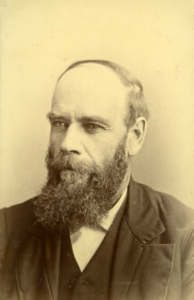
Photo: Ellen G. White Estate
MINNESOTA CAMP-MEETING. Providence permitting, the Minnesota camp-meeting will be held near the village of Medford, Steele Co., Minn., June 29-July 4, 1871.
NOTICE is hereby given that the Minnesota State Conference of Seventh-day Adventists will hold its next annual session in connection with the Minnesota camp-meeting to be held at Medford, Steele Co., Minn., June 29-July 4, 1871. And it is requested that all our churches in the State be represented by delegate or letter, giving a report of their standing, their losses, and additions during the year; also the yearly amount of their Systematic Benevolence fund.
HARRISON GRANT, CALVIN KELSEY, D. McALPINE, Minn. Conf. Com.
Review and Herald, May 30, 1871
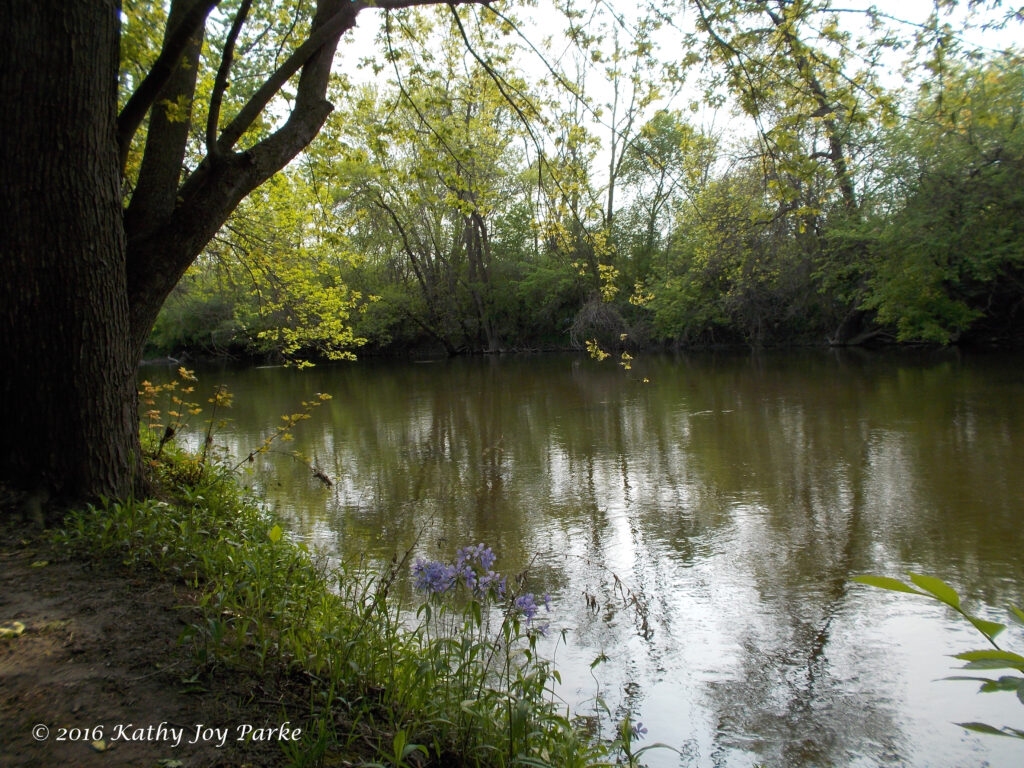
© 2016 Kathy Joy Parke

Photo: www.west2k.com
THE MINNESOTA CAMP-MEETING. It has been decided to hold this meeting at Medford, Steele Co., Minn., as the place most convenient and central. Medford is on the Minnesota Central R. R. Those coming on the Winona & St Peter R. R., will change cars at Owatonna. It is intended that ample provisions will be made for those who wish to procure food on the ground, as a provision stand will be kept at which food can be had at reasonable rates; also hay, grains, and good pasturage one mile and a half from the ground for those who wish to use it.
We are aware that it is no small task and sacrifice for many of our people in Minnesota to prepare to attend camp-meeting for want of means; yet we think all will be paid for all the efforts they may put forth to attend. A year with its toils, perplexities, and temptations, is before us, and we shall need the strength we shall receive to pass safely through them.
Come to the camp-meeting. Bring your friends, and those you wish to see converted, and let us all who can, bring a thank-offering to God for all his mercies shown, and that we are enabled still to have our faces set toward the end of the race.
And let all endeavor to have the meeting characterized with good order, as though worshiping at the house of God. We still hope that Bro. and sister White will be with us, and will do all in our power to relieve them of cares that they should not bear.
CALVIN KELSEY. Wells, Faribault Co., Minn., May 22, 1871.
Review and Herald, May 30, 1871, 192.
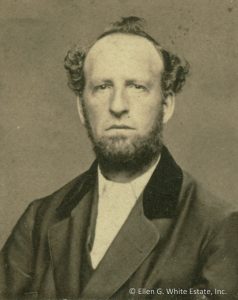
Photo: Ellen G. White Estate
WESTERN TOUR. (by James White)
Our last report was written on the train from Milton Junction, Wis., to Prairie du Chien. There we mailed the report, and hastened to the boat which took us across the Mississippi to North McGregor, Iowa, where the train was waiting to take us to Medford, the place of the Minnesota Camp-meeting. At ten in the evening, we took the sleeping car, as fine a car as we ever entered, and at five in the morning of fifth-day we reached Medford station, one-half mile from the camp-ground. Already the brethren had pitched the large tent, erected speakers’ and provision stands, and had put up nine family tents. The ground is very beautiful for this country, where groves suitable for camp-meeting purposes are very scarce.
Straight River forms the western boundary of the ground, just back of the speakers’ stand which fronts to the east. In front of the stand, and to the right and left, is sufficient shade for a large gathering of people. The brethren and sisters from different parts of Minnesota continued to come in, and tents were being erected till near the close of sixth-day, until there were in all twenty tents upon the ground. These tents were pitched in a half circle, each end of which commenced at the creek, at the right and left of the speakers’ stand, at a suitable distance so that a complete half circle might receive all the tents, at a proper distance apart, and also give room for the crowd on Sunday. Beside the twenty tents, there were back of the family tents quite a number of covered farm wagons, which served the purpose of family tents.

Photo: © 2019 Karin Schultz
This diorama can be viewed in person at Minnesota Camp Meetings
Money is very scarce in Minnesota, and some of the brethren were kept from this meeting for want of means. The brethren in this new State, with few exceptions, are poor, and nearly destitute of ready cash, and it is with no small effort that they hold their annual camp-meeting. And the good taste manifested, and the prompt action of these brethren, under existing circumstances, to say the least, is very commendable.
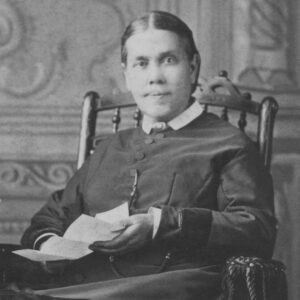
Photo: Ellen G. White Estate
The regular services of this camp-meeting commenced fifth-day evening. There were about one hundred and twenty-five present. On sixth-day the congregation increased at each of the services until evening, when Mrs. W. spoke in the large tent to a crowded assembly. At the close we were threatened with a storm, but our fears were not realized, and Sabbath morning was clear and comfortably cool.
The social meetings on the Sabbath were deeply interesting. Bro. Littlejohn spoke words of instruction and comfort in the morning, and Mrs. W. spoke in the afternoon to a large and attentive congregation. At the close of her remarks, the first seats were vacated, and sinners and backsliders were invited forward to bear the cross of separating themselves from the congregation as mourners on account of their sins, and as anxious for the prayers of the people of God in their behalf. Between thirty and forty came forward. It was a solemn season. Those who came forward manifested earnest sincerity and deep feeling. Several earnest prayers were offered when this interesting meeting closed at five P. M.
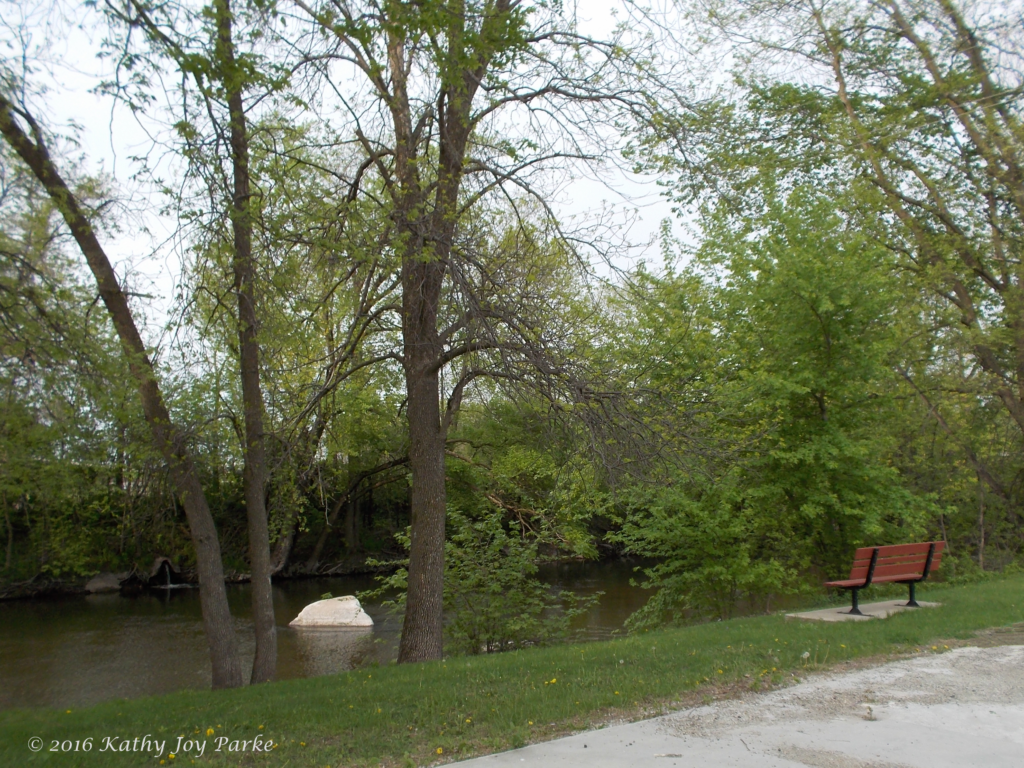
© 2016 Kathy Joy Parke
After a short intermission social meetings were held in most of the family tents. This gave an excellent opportunity to follow up the good work of the afternoon, and the brethren in the several tents improved it well. Probably, in no way do we suffer as great loss at our camp-meetings as in the want of social and personal labor in the family tents. Without this labor but little can be done at our camp-meetings for the salvation of souls. The preaching may be pointed and with power, the more public social meetings may be characterized with fervent exhortations, sinners and backsliders may be greatly moved in feeling, but unless they have personal labor in the family tents, they may not after all take their stand fully on the Lord’s side. The very time to help convicted men and women is when conviction is upon them. Our people should come to camp-meeting to labor for the salvation of souls, and when on the ground should commence in earnest to labor for this object.
In the evening following the Sabbath, we spoke to a very attentive audience on the law and the gospel. The evening was clear and comfortably cool. The full moon shone with a silvery luster upon our encampment, semi-circled with white cotton dwellings, in which the occupants slept sweetly all night, to awake only at five in the morning, at the sound of the bell. There is something wonderfully refreshing in a full night’s sleep in a well-ventilated cotton tabernacle, in the pure air of a Minnesota grove.
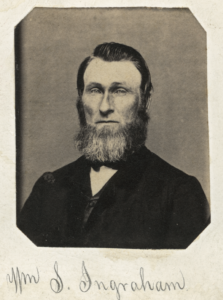
Photo: Center for Adventist Research
b26073110_k0001
First-day morning, the sun rises upon our encampment with a cheerful brightness, and at the ringing of the bell, the entire camp arise, to admire the clearness, coolness, and surpassing beauties, of the new morning. In thirty minutes the bell rings again, and the brethren and sisters are called by it to the large tent to the morning prayer-meeting. At a proper time in this meeting, Bro. Wm. S. Ingraham arose and gave a sketch of his experience in the Advent cause from the time he heard William Miller in 1842. He spoke freely of trials, and some mistakes he had made in arranging his secular matters in the hope of benefiting his family. He spoke of his unshaken faith in the position of Seventh-day Adventists, not excepting the subject of spiritual gifts, and stated that he received, as from the Lord, a recent reproof of his errors. His unqualified statements met the feelings of the brethren, and he and they wept together. We were happy to see Bro. Ingraham in the affections of his brethren, and rising in hope and faith, resolving to gird on the armor anew.
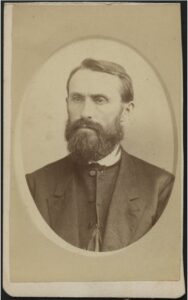
Photo: Center for Adventist Research
At nine A. M., a social meeting was held at the stand, and those desiring prayers were called to the front seats. As this meeting progressed, one after another of these inquiring souls arose and confessed Christ, until all were fully committed. The discouragements that were upon the minds of the brethren at the commencement of this camp-meeting are passing from them, and they are becoming hopeful and free.
At half past ten, Bro. Littlejohn addressed the people upon the Subject of the Sabbath. This is a very candid community, and our several services here have been characterized by all that good order and respect from the people, as is usual to the most orderly services in church.
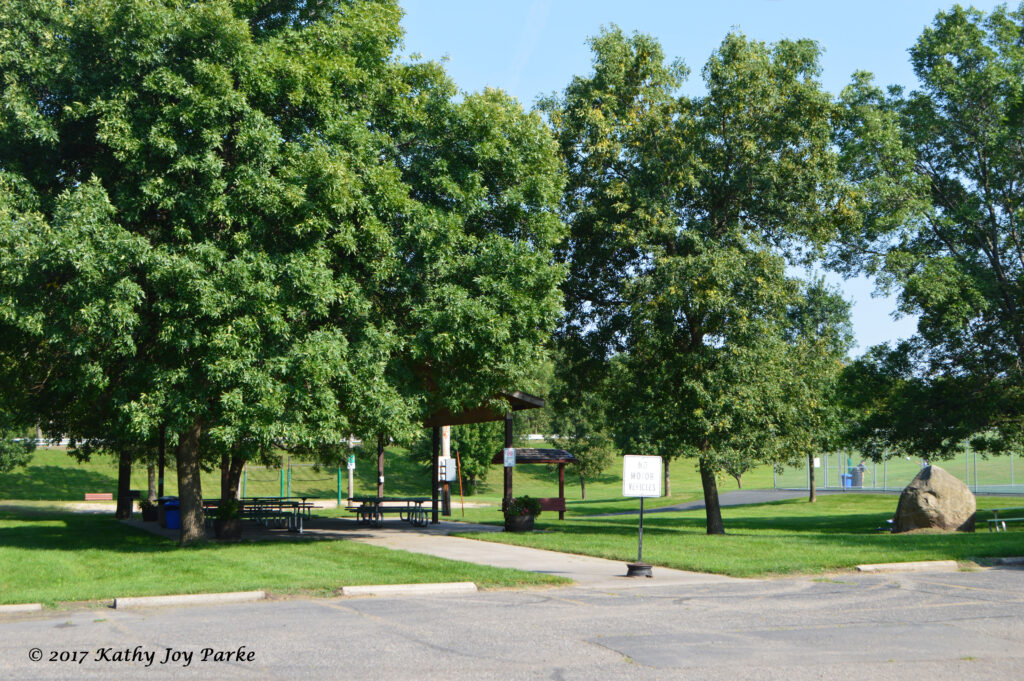
© 2017 Kathy Joy Parke
In the afternoon, Mrs. W. spoke to a large and orderly assembly, who listened with deepest interest. May God set home the word spoken.
In the evening, we spoke upon the four fundamental points of the great advent question; first, the personal second appearing of Christ; second, the application of the prophetic symbols; third, prophetic time; and fourth, the event to occur at the end of the prophetic days. We showed that on three points out of four, William Miller and his friends were correct; but on one point, the event to occur at the end of the days, he was mistaken. True, the time of expectation passed. And we have had, in the providence of God, light upon the sanctuary question, which corrects the one mistake of the Adventists of 1844. And this is done in a manner not to affect the main positions, only to make the system, as a whole, clearer and stronger than at any former period in the history of the Advent movement.
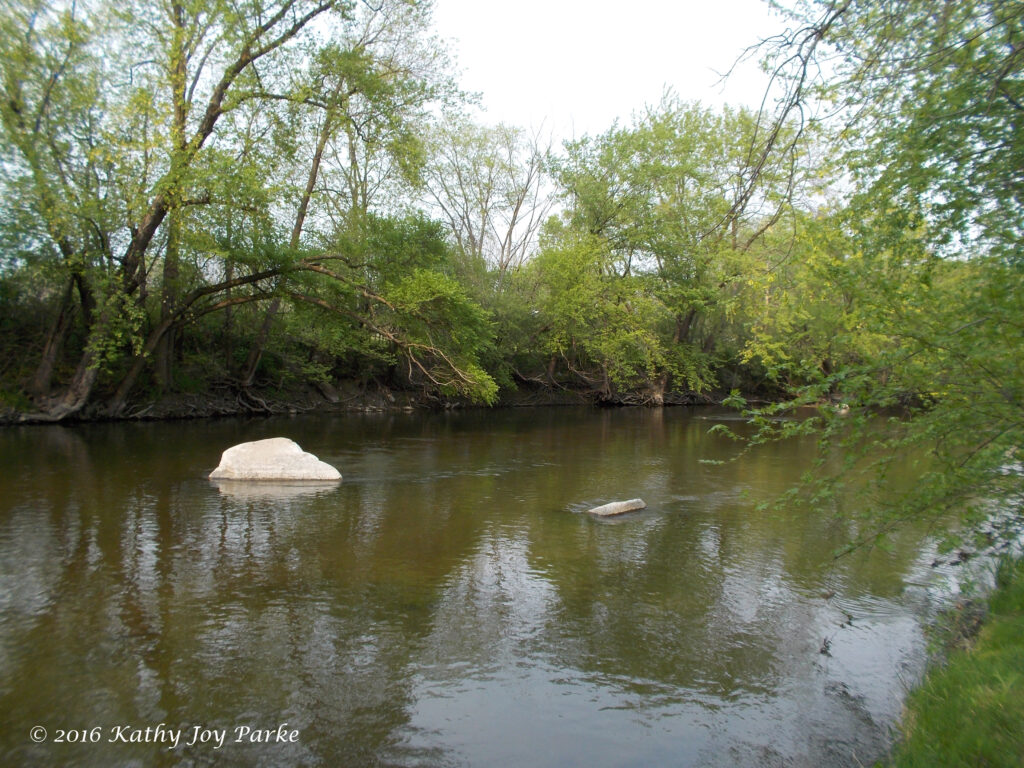
Site of the baptisms for the 1871-1874 Minnesota Camp Meetings
© 2016 Kathy Joy Parke
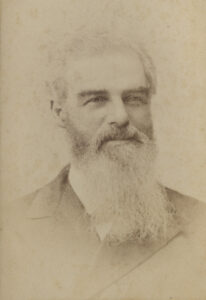
Photo: Center for Adventist Research
Second-day, Bro. Van Horn baptized twenty-four persons, most of whom were the fruits of our camp-meeting labor. And there were many incidents of this good meeting of the deepest interest, which we have not time to notice. One only we will briefly notice.
At the commencement of the Sabbath we were introduced to a Danish Baptist minister, who had come thirty miles, at the urgent request of some of our Danish brethren, to attend our meeting. This brother had had some light upon our views. He did not embrace them, and fell into a doubting, discouraged state of mind. He came to our meeting for help, and felt before he left that a degree of help had come. We loved his spirit, and enjoyed his visits much. He had labored hard and ardently for his people, as a missionary. He had published a paper in Chicago, and a hymn, book, in the Danish language, in which enterprise he had lost money. Discouragement was upon him. We exhorted him to look to God for help, and to follow the light. May God lead him to all the truth important for this time.

The brethren took down their tents third-day morning, and returned to their homes, feeling satisfied that they had enjoyed a very excellent camp-meeting. In company with Bro. and sister Van Horn we remained on the ground one day longer to finish articles for the REVIEW and the Reformer, intending to go from Medford, Minn., to Washington, Iowa. But when we reached Medford station, fourth-day at 11 A. M., a moment before the train came up to the station, the operator announced that a telegram was coming over the wires for Eld. White from Battle Creek. Just before the train stopped the telegram, hastily and imperfectly written, was put into our hands, containing the sad intelligence that our venerable father was low, and very near the close of life. This hastily read, we decided to change our course to Chicago and Battle Creek, and in a few seconds we were on our way.
ELD. JAMES WHITE, EDITOR – Review and Herald, July 11, 1871, 28.
Editors Note: Unbeknownst to James White, his father, John White, passed away on July 5, 1871, the day that James received the telegraph.
Learn more about these leaders:
(external sources)
Littlejohn, Wolcott H.
White, Ellen G.
White, James S.